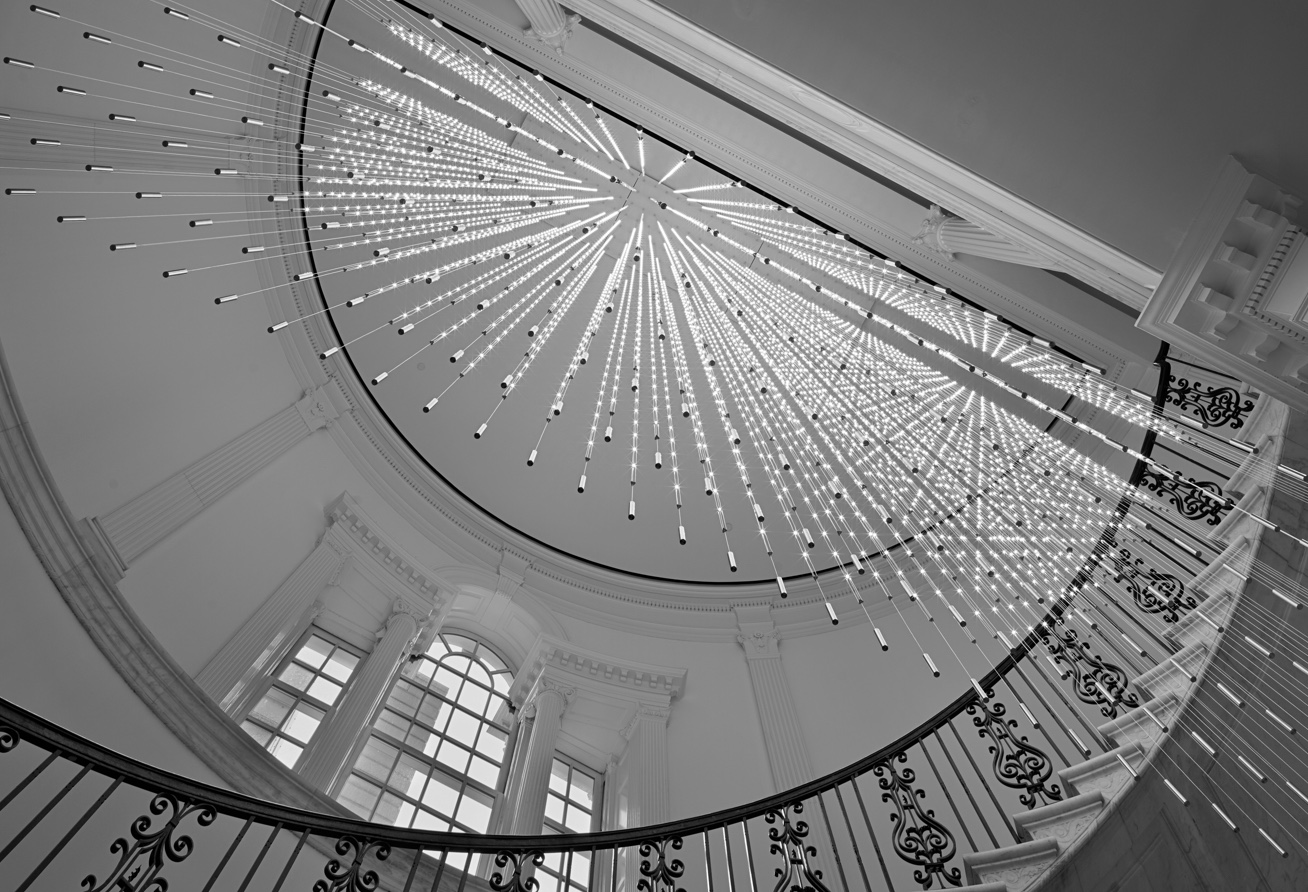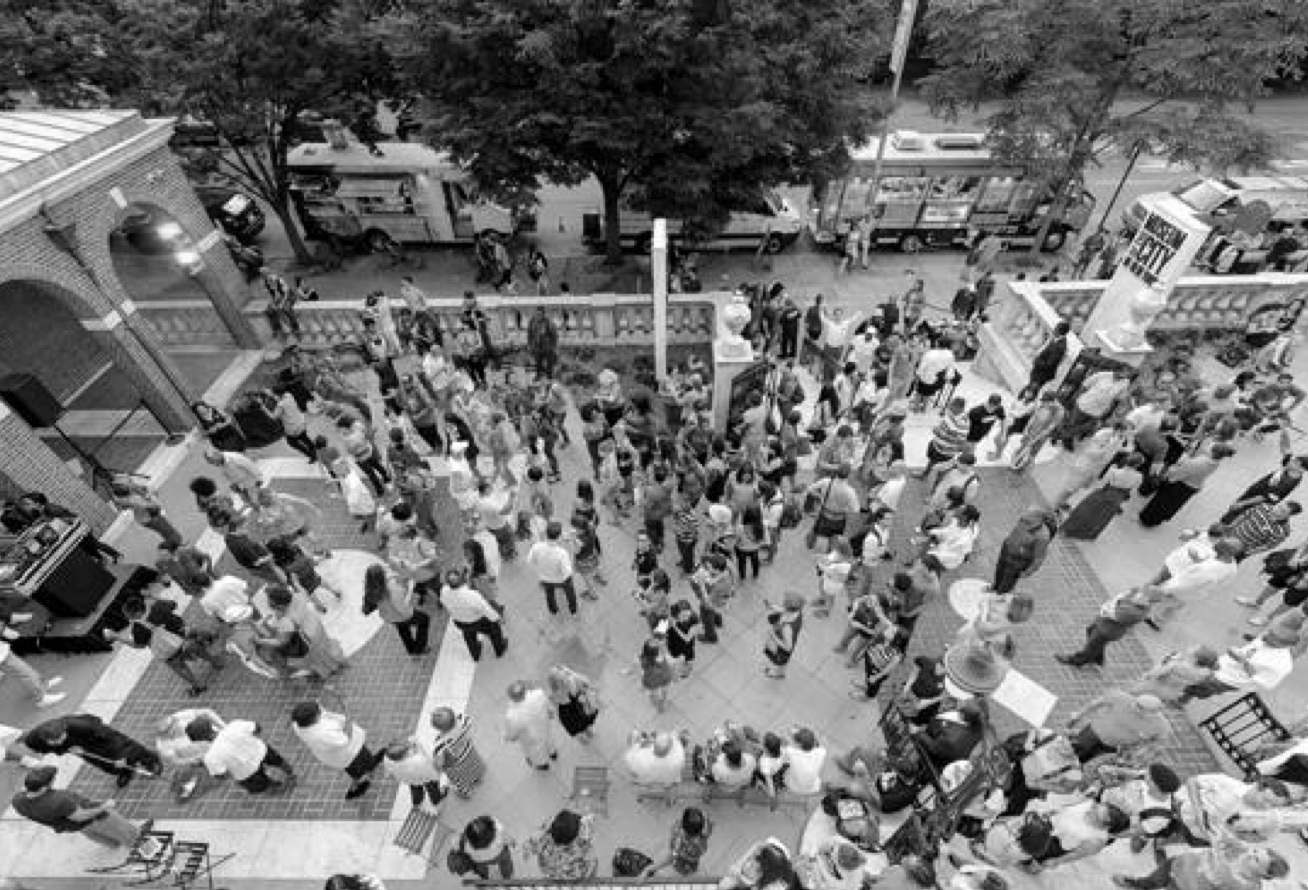Protesting Prohibition
Protesting Prohibition
1914-1933
Ongoing

Back to Exhibitions
In 1919, after decades of a national temperance campaign urging voluntary abstinence from alcohol, voters ratified the 18th amendment prohibiting alcohol’s manufacture and sale. A demand for sober workers during wartime helped usher in the amendment during World War I. New York City, with its famed nightlife and saloon culture, was at the center of the debate that continued to rage after the enactment of “Prohibition.”
While advocates of Prohibition pointed to improving the health and moral standing of the entire populace, their campaigns often pitted Anglo-Protestants against immigrants and working-class New Yorkers. Supporters blamed immigrants and workers for the widespread violation of the law once enacted, and New Yorkers who frequented saloons—places to drink but also to hold union meetings, speak native languages, and sometimes vote in local elections—claimed they were unfairly targeted by law enforcement. As Prohibition wore on, foreign-born and working-class New Yorkers argued that it infringed on civil liberties and was un-American.
Uneven enforcement and the continued circulation of illegal alcohol led to widespread lawbreaking, corruption, and a nationwide backlash. Opposition to Prohibition by elected officials and grassroots organizations in New York, including Governor Al Smith, Congressman Fiorello La Guardia, and the Manhattan-based Women’s Organization for National Prohibition Reform (WONPR), increased throughout the 1920s.
In 1933, the 21st amendment repealed the 18th—the only time an amendment has been entirely repealed. An early “culture war,” the controversy concerned not just alcohol, but also the government’s power to regulate behavior.
Meet the Activists
Pauline Sabin


Pauline Sabin
New Yorker Pauline Sabin played a singular role in the demise of Prohibition. Previously active in the Republican Party, the socially prominent and politically well-connected Sabin founded the Women's Organization for National Prohibition Reform (WONPR) with friends in May 1929. Originally a supporter of Prohibition, she came to believe it had unleashed corruption, hypocrisy, and a growing disrespect for the law. With her independent political activities and style, Sabine personified the modern “new woman” of the 1920s.
Image Info: Photographer unknown, ca. 1925, Museum of the City of New York, Portrait Archives, F2012.58.1111.
William H. Anderson


William H. Anderson
William H. Anderson led the New York Anti-Saloon League in its quest to enact Prohibition in the city and state. Anderson’s lobbying skills helped pass the 18th amendment nationwide, but he underestimated continuing opposition after Prohibition’s enactment. His aggressive tactics and anti-immigrant rhetoric also created enemies: in 1924, Anderson was indicted for forgery—charges he claimed were orchestrated by the anti-Prohibition Tammany Hall.
Image Info: Bain News Service, 1915-1920, Courtesy Library of Congress, Prints and Photographs Division, LC-B2-3935-11.
Ella Boole


Ella Boole
Ella Boole spent six decades as a leader in the Women’s Christian Temperance Union (WCTU), the leading temperance group that began in Ohio in the 1870s. After joining the group in the 1880s in Ohio, Boole moved to Brooklyn and became President of the New York State WCTU in 1898, before leading the international organization beginning in 1931.
Image Info: Bain News Service, 1925, Courtesy Library of Congress, Prints & Photographs Division, LC-USZ62-107372.
Mrs. Christian R. Holmes


Mrs. Christian R. Holmes
In May 1931, members of the Women’s Organization for Prohibition Reform (WONPR) embarked on a motorcade through New York State to raise support for their campaign to end Prohibition. The motorcade left from Fifth Avenue and 92nd Street, home of Mrs. Christian R. Holmes (née Bettie Fleishmann), pictured second from right. In addition to her activism against the 18th amendment, Holmes was an art collector and lifelong philanthropist.
Image Info: Photographer unknown, May 1931, Museum of the City of New York, gift of Mrs. William B. Remington, 56.71.123.
Objects & Images
Cadets Of Temperance Constitution And By-laws


Cadets Of Temperance Constitution And By-laws
The Cadets of Temperance comprised the youth branch of the Sons of Temperance, the most widely known national temperance organization, and was founded in 1842 in New York City. An exclusive group of men who promoted mutual aid as well as abstinence from alcohol, members sought “virtue, morality, and sobriety.” The all-male membership of both groups contrasted with the widespread idea that temperance advocates were mostly women.
Image Info: Published by John P. Prall, Spruce Street, New York, 1871, Museum of the City of New York, gift of Mrs. Wesley W. Tillotson, 48.356.1.
Dew-tone Bottle


Dew-tone Bottle
During Prohibition, it was possible to obtain alcohol legally with a doctor’s prescription. Companies like Dewey’s, based in Manhattan, marketed their “Dew-Tone” sauterne, a type of sweet wine, as “restorative for convalescents.” Alcohol had been discredited as medicine by the early 1900s, however, and those who touted its medicinal value were seen as simply circumventing Prohibition.
Image Info: ca. 1921-1926, Museum of the City of New York, gift of Mrs. Loretto deM. Lamb, 91.26.1.
Speakeasy Cards And Bootlegger Price Lists


Speakeasy Cards And Bootlegger Price Lists
Drinking in the city actually increased during Prohibition. Thousands of illegal "speakeasies," including the segregated Cotton Club, served alcohol to patrons, who also bought liquor directly from manufacturers or "bootleggers." Establishments closed by law enforcement would often move and re-open.
Image Info: 1920-1933, Museum of the City of New York, Gift of Mr. Bernhard K. Schaefer, X2012.102.69, X2012.102.32, X2012.102.66.
New York City Deputy Police Commissioner John A. Leach (right) Watching Agents Pour Liquor Into Sewer


New York City Deputy Police Commissioner John A. Leach (right) Watching Agents Pour Liquor Into Sewer
Prohibition enforcement was underfunded and inconsistently executed. Initially led by the federal Treasury Department, the New York City police force was reluctant to use its resources to implement the alcohol ban. Many enforcement officers were found guilty of taking bribes or having ties to organized crime.
Image Info: ca. 1921, Courtesy Library of Congress, Prints & Photographs Division, NYWT&S Collection, LC-USZ62-123257.
Liquor Raid At Luigi’s, Greenwich Village


Liquor Raid At Luigi’s, Greenwich Village
Progressive-era and Prohibition reformers often took aim at saloons, arguing that spent wages and alcohol consumption hurt working-class families. While $60,000 of illegal liquor was confiscated from Luigi’s in the raid shown here, the owner was not charged, as he claimed that the alcohol was left over from before Prohibition.
Image Info: January 24, 1923, Museum of the City of New York, Cityana Collection, gift of Mr. Benjamin Blom, 91.69.20.
Antiprohibition Parade


Antiprohibition Parade
On July 4, 1921, thousands of New Yorkers marched up Fifth Avenue in one of the earliest protests against Prohibition. Organized by the American Liberties League, the parade included German, Irish, and African-American groups; veterans; and Mayor John Francis Hylan. The biblical quotation on the parade float, while presented in a humorous way, illustrates the debate during Prohibition over using alcohol for medicinal purposes. Opponents also differed over the use of sacramental wine by religious groups.
Image Info: Underwood & Underwood, July 4, 1921, Museum of the City of New York, Photo Archives, X2010.11.10969.
Fiorello La Guardia Pouring Beer At His Congressional Office


Fiorello La Guardia Pouring Beer At His Congressional Office
A fervent opponent of Prohibition, Fiorello La Guardia staged a beer-making demonstration for reporters in 1926 in order to defy the law. La Guardia—at the time a congressman, and later the mayor of New York City—and Governor Al Smith emphasized how Prohibition targeted working-class New Yorkers and distracted officials from other pressing issues. While Smith’s position led him to lose the 1928 presidential election, Democratic officials ultimately dismantled Prohibition.
Image Info: June 1926, Courtesy La Guardia and Wagner Archives, La Guardia Community College/The City University of New York.
Collection Canister


Collection Canister
The Women’s Organization for National Prohibition Reform (WONPR) played a central role in generating momentum to repeal the 18th amendment. Members argued that Prohibition increased underage drinking, infringed on personal liberty, and hurt the rule of law. The group's connections to elite women led to effective fundraising, even during the Great Depression, and by August 1932, the WONPR had 1,018,000 members across the country.
Image Info: Women’s Organization for National Prohibition Reform, ca. 1920-1933, Museum of the City of New York, gift of Mrs. William B. Remington, 56.71.78.
“Repeal 18th Amendment” Accessories


“Repeal 18th Amendment” Accessories
WONPR used the emergence of mass consumer culture as a successful political tool, opening a “repeal shop” on Madison Avenue in 1932, and another in the Bergdorf-Goodman department store, that sold playing cards, neckties, and more.
Image Info: Women’s Organization for National Prohibition Reform, 1928-1933, Museum of the City of New York, gifts of Mrs. William B. Remington, 56.71.9, 56.71.10, 56.71.28, and 56.71.21.
“Beer Parade” Souvenir


“Beer Parade” Souvenir
On May 14, 1932, 100,000 New Yorkers marched down Fifth Avenue in objection to the 18th amendment with signs stating “We Want Beer” and “We Prefer Brewers of Beer to Brewers of Bigotry.” Mayor James “Jimmy” Walker, a longtime Prohibition opponent, had organized the “Beer for Taxation” parade, opining that legalizing beer would create tax revenue and jobs. This poster from the parade mocks temperance supporters and suggests that Prohibition infringed on liberty itself.
Image Info: May 14, 1932, Lithograph, Museum of the City of New York, gift of Mr. Bernhard K. Schaefer, 57.334.
"Parade For Repeal"


"Parade For Repeal"
This painting by New York artist Ben Shahn of a demonstration against Prohibition formed part of Shahn’s uncompleted Prohibition mural series intended for the Central Park Casino (now Tavern on the Green). The project was halted when its funder, the federal Public Works of Art Project, part of the New Deal, disbanded in 1934.
Image Info: Ben Shahn, ca. 1934, gouache and tempera on masonite, Museum of the City of New York, courtesy of the Fine Arts Program, Public Building Services, U.S. General Services Administration Commissioned through the New Deal Art Projects.
Special Election Broadside


Special Election Broadside
As a bipartisan, single-issue organization, the WONPR lobbied elected officials from both major political parties and supported candidates across the political spectrum who opposed Prohibition. This flyer advertises the special election to select delegates who would meet at a statewide convention to vote on the repeal of the 18th amendment in New York State.
Image Info: 1933, Museum of the City of New York, gift of Mrs. William B. Remington, 56.71.90.
Invitation To The Wing Club, 8 West 52nd Street, To Celebrate The Repeal Of The 18th Amendment


Invitation To The Wing Club, 8 West 52nd Street, To Celebrate The Repeal Of The 18th Amendment
This invitation used satire to celebrate the demise of Prohibition. New York was ninth of the 36 states needed to ratify the 21st amendment that would repeal the 18th. The official end of Prohibition on December 15, 1933, which was prompted in part by the Great Depression, was met with overwhelming approval.
Image Info: November 7, 1933, Museum of the City of New York, gift of Mrs. William B. Remington, 56.71.49A-B.
Key Events
| Global | Year | Local |
|---|---|---|
|
|
1842 | The Sons of Temperance organization is founded in New York |
| Women’s Christian Temperance Union is founded in Ohio, operates internationally | 1873 |
|
| 1914 |
William Anderson assumes control of the New York Anti-Saloon League, heightening the statewide campaign against Prohibition |
|
|
The United States enters World War Alcohol is banned for soldiers |
1917 |
|
| 1920The 18th amendment, prohibiting the manufacturing, transportation, and sale of alcohol in the United States, goes into effect | 1920 |
|
| 1921 | Thousands of New Yorkers march up Fifth Avenue to protest Prohibition | |
| 1923 |
Al Smith signs bill to repeal the Mullan-Gage Law, ending local enforcement of Prohibition |


